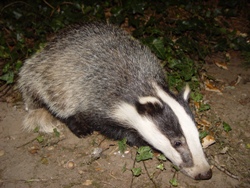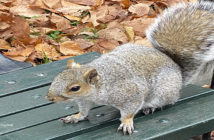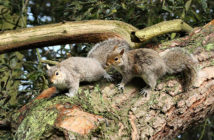The long-awaited announcement of a controlled cull of badges to tackle the spread of bovine tuberculosis in cattle was finally made on 14 December. Environment Secretary Caroline Spelman said the controlled culling of badgers would form part of a science-led and carefully managed badger control policy.
Nearly 25,000 cattle were slaughtered in England last year alone because of bovine TB, with the cost to the taxpayer set to top £1 billion over the next ten years. The problem is particularly bad in west and south-west England, where nearly a quarter of all cattle farms were affected by the disease during 2010.
|
The two pilots, carried out over a period of six weeks, will be closely managed and monitored to examine how safe, effective and humane a method this is. An independent panel of experts will be asked to oversee and evaluate the pilots and report to Ministers, before a decision is made on whether to roll out the policy more widely. “We are clear these pilots must be carried out in accordance with strict licensing conditions so that they are effective, safe and humane. Natural England will carefully consider two license applications, pre-selected by Defra, and will assess them against the criteria set out in the guidance I am publishing today,” explained the Environment Secretary. Natural England is the licensing authority in England for licences under the Protection of Badgers Act 1992. |
|
|
Natural England”s first task is to determine the two applications from areas participating in the pilot. Two areas will be selected by Defra from a short-list submitted by the farming industry and invited to submit an application for a licence to Natural England. Further licences to cull badgers will not be issued until the pilot phase is complete When the cull is finaly undetaken this is likely to be a highly charged affair with civil disorder a strong possibility. The cull will not start until after the Olympics, due to the expected high policing requirements. |
|
Badger vacination
Mrs Spelman also revealed that up to £250,000 a year will be made available over the next three years to support and encourage badger vaccination. The Government has already spent £35 million on developing badger and cattle vaccines since 1994 and plan to spend another £20 million on the development of practical and usable vaccines over the next five years. Click here to read in full.
There is scope for professional pest controllers to become lay vaccinators. Courses lasting four days are organised by FERA. Participants will learn about badger ecology, bovine TB, live-trapping and vaccination of badgers. The course is a mix of classroom theory and practical field training. The field training component involves cage trapping and vaccinating badgers as part of real vaccination operations. Click here for details.
Badger survey
This announcement comes only a matter of days after an announcement from Defra that it is undertake a survey of the badger population in England and Wales in 2011-13. The last National Badger Survey of Great Britain was completed in 1997 when it was revealed that badger numbers had increased substantially.
Inaugural urban badger conference
No doubt these issues will be covered at the Inaugural urban badger conference to be held on the 2 March 2012 at the Ramada Encore Hotel in Derby. Organised by Urban Wildlife, the aim of the conference is to inform groups and individuals of the growing phenomenon which is the urban badger.




